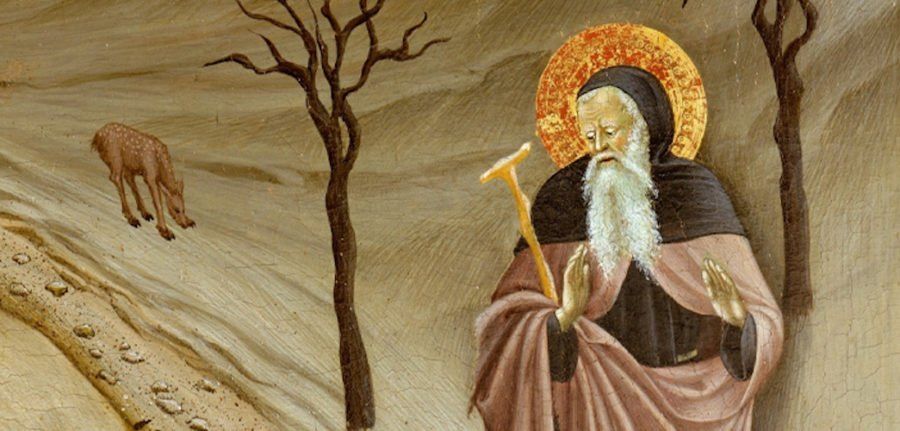Message of Abbot Paul - Monday 17th January

Message from Fr Paul for Monday, 17th January 2022
St Antony of Egypt is one of the best known and most loved saints of the Catholic and Orthodox Churches and one in whom we recognise our unity in the search for God through the monastic life. He was one of the first monks in the history of the Church and his life is well documented. In fact, The Life of Antony was written by St Athanasius of Alexandria. Monasticism was a spontaneous movement, a charismatic form of Christian life that arose all over the Christian world and particularly in North Africa and the Middle East in the third century, because of the desire among many Christians to live strictly according to the Gospel and the teaching and example of Jesus. St Antony, a Copt, was born in January 251 and died on this day in the year 356 and is regarded as the Father of all Monks.
---
Our Gospel passage for today comes from Mark, (Mk 2: 18-22), and continues where we left off on Saturday. It touches on the subject of fasting. Some people want to know why John’s disciples and the Pharisees fast, but Jesus’ disciples do not. Here is the passage. “One day when John’s disciples and the Pharisees were fasting, some people came to Jesus and said to him, ‘Why is it that John’s disciples and the disciples of the Pharisees fast, but your disciples do not?’ Jesus replied, ‘Surely the bridegroom’s attendants would never think of fasting while the bridegroom is still with them? As long as they have the bridegroom with them, they could not think of fasting. But the time will come for the bridegroom to be taken away from them, and then, on that day, they will fast. No one sews a piece of unshrunken cloth on an old cloak; if he does, the patch pulls away from it, the new from the old, and the tear gets worse. And nobody puts new wine into old wineskins; if he does, the wine will burst the skins, and the wine is lost and the skins too. No! New wine, fresh skins!’”
People are curious to know why Jesus and his disciples do the things they do. They are for ever asking, “Why?” Jesus’ explanation about fasting is made up of a short parable: that of the presence of the bridegroom with his attendants, then two brief metaphors, putting a patch on an old cloak and the use of wineskins. We could explain them like this. Through his Incarnation, Jesus has united heaven and earth. He is the bridegroom, the world and all its people his bride, or, if you like, the Church is the Bride of Christ and the disciples his attendants. This is a very popular theme in the New Testament. Even if Christians fast, they do so rejoicing, because Christ has come among us to redeem us and reconcile us with the Father. New wine, fresh skins, for Jesus is the new wine and he brings new life, a new creation. Think of yesterday’s Gospel from John on the Wedding Feast at Cana. Jesus himself is the best wine that has been kept until last, for these are the Last Days.
Lord Jesus, may we faithfully follow you and rejoice to be your attendants, your disciples and your friends. May we rejoice and enjoy the new life you have given us in sharing with us the new wine, which is yourself. Amen.









